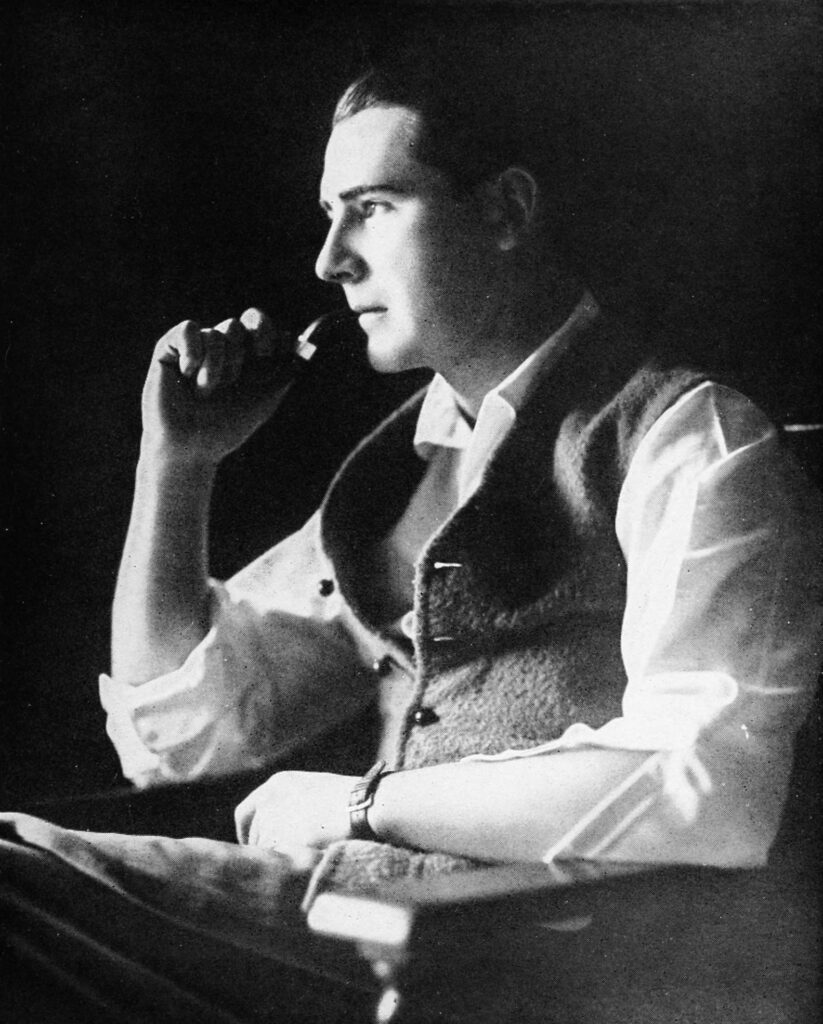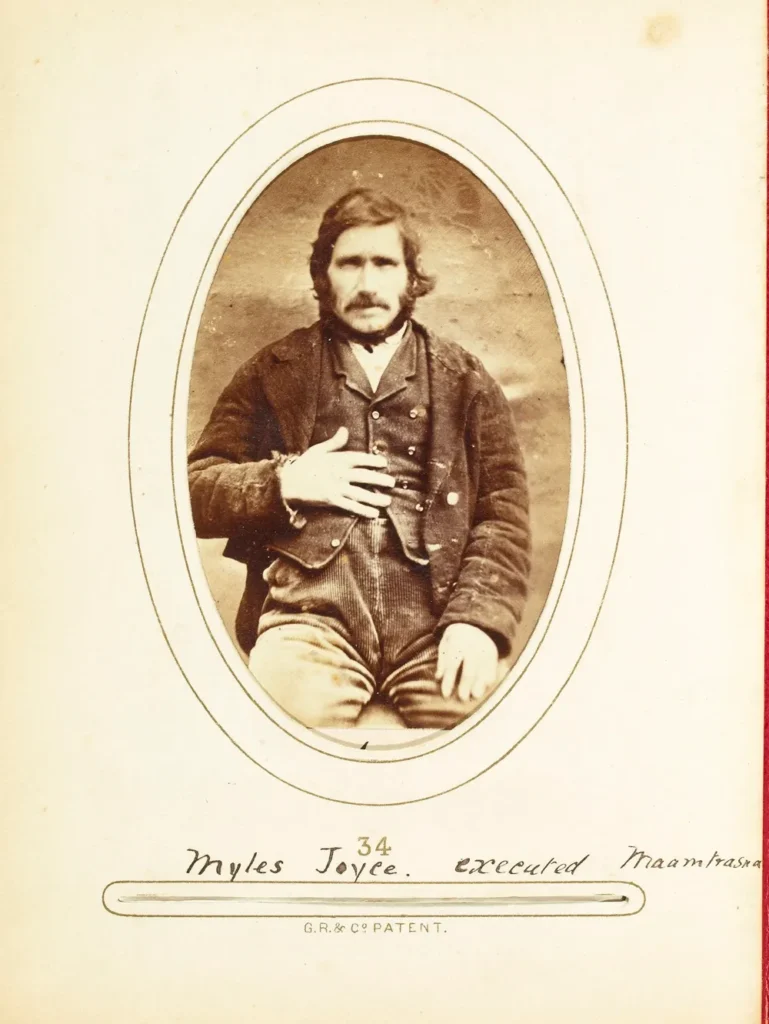BY AODHÁN CREALEY
JULY
22/1950

Reginald Ingram Montgomery Hitchcock (57), the film director known as Rex Ingram, died in California. Born in Rathmines, the son of a clergyman, Ingram emigrated at the age of eighteen and studied sculpture in New York. Subsequently he joined the Edison Film Studios, where he acted, wrote scripts and, in 1916, made his first film. In all he directed some 27 films, notably The Four Horsemen of the Apocalypse (1920). An international success (although it was savaged by the critics when it opened in Dublin two years later), it made the then-unknown Rudolph Valentino into the world’s first movie superstar. In 1923 he moved to France and took over the Victorine Studios in Nice, where he directed several more films, including one ‘talkie’. In 1926 he was awarded the Legion d’Honneur Française. By coincidence, Ingram in his youth was a near neighbour of Herbert Brenon, who, along with Ingram and D.W. Griffith (1875–1948), was one of the leading film-makers of the 1920s. Thirteen years older than Ingram, Brenon—Alexander Herbert Reginald St John Brenon, to give him his full title—emigrated aged sixteen, directed his first film for the Universal Company in 1910 and afterwards wrote or acted in some 300 films. Mention of film-making and the surname Hitchcock of course immediately brings to mind Alfred Hitchcock (1899–1980), ‘the master of suspense’. Six years younger than Ingram, the pair may well have met, although the story that Ingram told him to change his name ‘if he wanted to get anywhere’ is fanciful. Born and raised in London, ‘the master of suspense’ too had strong Irish connections. His mother, Emma Whelan, was from Cork.
03/1975
The Druid Theatre opened with a production of Synge’s The Playboy of the Western World at the Jesuit Hall, Galway.
04/1925
The Shannon Electricity Act authorised the construction of a hydroelectric power station in Ardnacrusha, Co. Clare (completed in 1929), and a scheme for the electrification of Ireland.
05/1945
In the British general election, the opposition Labour Party, led by Clement Attlee, won a landslide victory with a 146-seat parliamentary majority.
07/2005
In suicide attacks in London, three bombs exploded on the Underground and another in a bus, killing 52, including two Irish citizens, and injuring over 700.
13/1985
The Live Aid concert, organised by Bob Geldof and Midge Ure, to raise funds for famine in Ethiopia took place simultaneously in London and Philadelphia. The live broadcast was watched by an audience estimated at 1.9 billion people.
17/1935
George William Russell (‘AE’, 68), journalist, poet, mystic, philosopher and painter, died.
18/1925
Mein Kampf by Adolf Hitler was published.
26/1575
The Rathlin Island massacre. In the course of a campaign to colonise north-east Ulster, the entire population of the island, some 600 men, women and children, were slaughtered by the forces of Walter Devereux, 1st Earl of Essex, under Sir John Norris and Francis Drake.
28/2005
The Provisional IRA called an end to its armed campaign and promised to conclude decommissioning ‘as quickly as possible’.
31/1975
Three members of the Miami showband were murdered by a UVF gang who stopped their minibus at a fake UDR checkpoint on the main road between Banbridge and Newry, Co. Down, in the early hours of the morning. Two members of the gang, who were serving members of the UDR, were killed when a bomb they were preparing in the minibus—intended to detonate as it travelled south—exploded prematurely.
AUGUST
18/1882

The Maamtrasna murders. Five members of the Joyce family—Patrick, his wife and his mother, along with a son and daughter—were shot or bludgeoned to death by intruders in the early hours of the morning at their home in the remote valley on the Mayo–Galway border. Remembered as one of the worst outrages of nineteenth-century Ireland, the target was Patrick Joyce, an alleged sheep-stealer. The case is also recalled as one of the most blatant miscarriages of justice in British legal history. In their haste to secure convictions, the police arrested ten men named by Patrick’s brother Anthony, who falsely claimed to have seen them entering the house. Charged with murder, two of them turned state’s evidence; three were hanged in Galway gaol in December that year, two of whom admitted their guilt whilst declaring that the third man, Myles Joyce, was innocent. When sentence was passed, the latter made a passionate speech in Irish—all were native speakers with little English—pleading his innocence, and continued to plead even as he was led to the scaffold. The remaining five, on the advice of their parish priest, pleaded guilty and had their death sentences commuted to life imprisonment, two of them dying in custody and the third only released in 1902. Meanwhile, numerous appeals for an enquiry were made to Lord Lieutenant Earl Spencer, who insisted that ‘the law must run its course’. The case was twice raised in the House of Commons, on the second occasion by Charles Stewart Parnell. It is generally agreed that the five had no part in the massacre. Myles Joyce was granted a posthumous pardon by President Higgins in 2018.
03/1955
The English-language première of Samuel Beckett’s Waiting for Godot, directed by Peter Hall, opened at the Arts Theatre, London.
05/1925
Annie Walsh (31) and her nephew and lover Michael Talbot (24) were hanged in Mountjoy prison for the murder of Annie’s husband, Edward Walsh (60). She was the last woman to be executed in Ireland.
04/1725
John Newton, slave-ship captain and later prominent abolitionist whose conversion to evangelical Christianity began during a storm on board the Greyhound in Lough Swilly (1748), born in Wapping, London.
06/1775
Daniel O’Connell, ‘the Liberator’, born in Carhan, near Cahersiveen, Co. Kerry, to Morgan and Catherine (née O’Mullane) O’Connell. He was reared in Derrynane House by his bachelor uncle, Maurice ‘Hunting Cap’ O’Connell.
10/1975
Robert Barton (94), the longest-surviving signatory of the Anglo-Irish Treaty (1921), died.
13/1975
Five people were killed and up to 60 others injured in an IRA bomb and gun attack on the crowded Bayardo bar on the Shankill Road, Belfast.
19/2005
Marjorie ‘Mo’ Mowlam (55), Labour Party MP from 1987 and secretary of state for Northern Ireland (1997–9), who played a prominent role in the Good Friday Agreement (1998), died.
23/1825
Michael Dwyer (53), United Irishman who fought in 1798 and thereafter conducted a guerrilla campaign against the Crown in the Wicklow mountains until he surrendered and was transported (1804), died in Sydney.
29/1975
Éamon de Valera (92), revolutionary, co-founder of Fianna Fáil and the dominant political figure of twentieth-century Ireland, died.
30/1775
George Faulkner (c. 72), bookseller and printer of the Dublin Journal and the first to publish a collected edition of the works of Jonathan Swift (1735), died.
31/1945
George Ivan ‘Van the Man’ Morrison, singer-songwriter, born in Bloomfield, east Belfast.